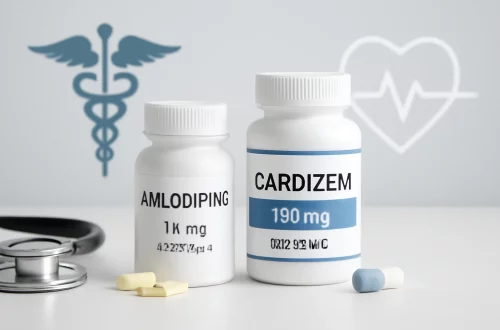
Essential Dog Skin and Coat Supplements for a Healthy Shine
A healthy coat and skin are fundamental aspects of dog care that often go overlooked by pet owners. Many might assume that regular grooming and bathing are sufficient to maintain their dog’s appearance. However, the truth is that a vibrant, shiny coat and healthy skin are reflections of your dog’s overall health and well-being. Just like humans, dogs require a balanced diet complemented by essential nutrients to promote optimal skin and coat health.
Skin and coat issues can manifest in various forms, including dryness, flakiness, excessive shedding, and irritation. These problems can not only be uncomfortable for dogs but can also indicate underlying health issues that may require attention. Therefore, it is crucial to understand the role that supplements play in maintaining the skin and coat of our furry friends. In an ever-evolving pet care landscape, the right combination of vitamins, minerals, and fatty acids can make a significant difference in the quality of your dog’s skin and coat.
Pet owners are increasingly turning to supplements as part of their dog’s health regimen. With a myriad of options available on the market, it’s essential to identify which supplements are truly beneficial and necessary. By doing so, you ensure that your dog receives the best possible care and enjoys a radiant coat that reflects their vitality.
Understanding the Role of Omega Fatty Acids
Omega fatty acids, particularly Omega-3 and Omega-6, are vital components for maintaining a healthy skin and coat in dogs. These essential fatty acids cannot be produced by the body, meaning they must be obtained through diet or supplements. Omega-3 fatty acids, often sourced from fish oil, have anti-inflammatory properties that can help alleviate skin issues like allergies and dermatitis. Meanwhile, Omega-6 fatty acids are crucial for maintaining the skin barrier, ensuring moisture retention and protection against environmental irritants.
Incorporating Omega fatty acids into your dog’s diet can lead to a notable improvement in their coat’s shine and texture. A well-nourished coat is less prone to matting and tangling, making grooming sessions easier and more enjoyable for both you and your pet. Additionally, dogs with a balanced intake of Omega fatty acids often experience reduced itching and scratching, which can be a relief for those suffering from skin sensitivities.
When selecting an Omega fatty acid supplement, look for high-quality products that provide a balanced ratio of Omega-3 to Omega-6. It’s essential to consult with your veterinarian to determine the appropriate dosage based on your dog’s size, age, and health conditions. Regular supplementation, combined with a nutritious diet, can lead to a healthier, shinier coat that showcases your dog’s inner vitality.
The Importance of Biotin and Other B Vitamins
Biotin, also known as Vitamin B7, plays a crucial role in maintaining healthy skin and fur in dogs. This water-soluble vitamin is part of the B-complex family and is essential for various metabolic processes, including the synthesis of fatty acids and amino acids. A deficiency in biotin can lead to several skin issues, including dryness, flakiness, and even hair loss.
In addition to biotin, other B vitamins, such as B1, B2, B3, B5, B6, and B12, are important for overall health and well-being. These vitamins work synergistically to support the skin, coat, and immune system. For instance, Vitamin B12 is known to promote cellular health, while Vitamin B6 supports the production of neurotransmitters that can positively affect your dog’s mood and behavior.
For pet owners looking to enhance their dog’s coat health, incorporating B vitamin supplements can be beneficial. Many commercial dog foods already contain these vitamins, but supplementation may be necessary for dogs with specific dietary needs or health conditions. Always consult your veterinarian before introducing new supplements into your dog’s diet to ensure they align with your pet’s health requirements.
Antioxidants for Skin Health
Antioxidants play a vital role in combating oxidative stress, which can adversely affect skin health. Free radicals, generated by environmental factors such as pollution, UV radiation, and even stress, can damage skin cells and lead to premature aging. Antioxidants help neutralize these harmful compounds, promoting healthier skin and a more vibrant coat.
Common antioxidants that benefit dogs include vitamins C and E, selenium, and beta-carotene. Vitamin C is known for its immune-boosting properties, while Vitamin E helps to improve skin elasticity and hydration. Selenium is a trace mineral that works alongside vitamins to enhance skin health, and beta-carotene, a precursor to Vitamin A, supports skin cell production and repair.
Incorporating antioxidant-rich supplements can provide your dog with added protection against environmental stressors. This is particularly important for dogs that spend a lot of time outdoors or have a history of skin issues. When selecting antioxidant supplements, look for products that contain a blend of these essential nutrients to provide comprehensive support for your dog’s skin and coat.
As always, it’s crucial to consult with your veterinarian before beginning any new supplement regimen. They can help determine the best combination of antioxidants tailored to your dog’s individual needs, ensuring optimal skin and coat health.
Choosing the Right Supplement for Your Dog
Selecting the appropriate supplement for your dog can be a daunting task, given the vast array of products available in the market. It’s essential to choose high-quality supplements that are specifically formulated for canine health. Look for products that have been tested for safety and efficacy, preferably those that have received endorsements from veterinary professionals.
When considering a supplement, take the time to read the ingredient list carefully. Ensure that the product contains the necessary nutrients without any harmful additives or fillers. Additionally, consider your dog’s specific health needs and dietary restrictions. For instance, if your dog has allergies, opting for a hypoallergenic supplement may be the best choice.
Moreover, it’s important to monitor your dog’s response to any new supplement. Keep an eye out for any changes in coat condition, energy levels, or overall health. If you notice any adverse reactions, discontinue use immediately and consult your veterinarian. Remember, every dog is unique, and what works for one may not work for another.
Lastly, don’t forget that supplements should complement a balanced diet rather than replace it. Ensure that your dog is receiving high-quality food that meets their nutritional needs. A holistic approach that combines proper nutrition, regular exercise, and appropriate supplements can lead to optimum health and a beautiful, shiny coat.
In conclusion, investing in your dog’s skin and coat health through the right supplements can enhance their overall well-being. However, it’s essential to consult with a veterinarian before making significant changes to your dog’s health regimen to ensure that the chosen supplements align with their specific needs.
—
**Disclaimer**: This article is for informational purposes only and should not be considered medical advice. Always consult your veterinarian for any health concerns or before starting any new supplements for your pet.




